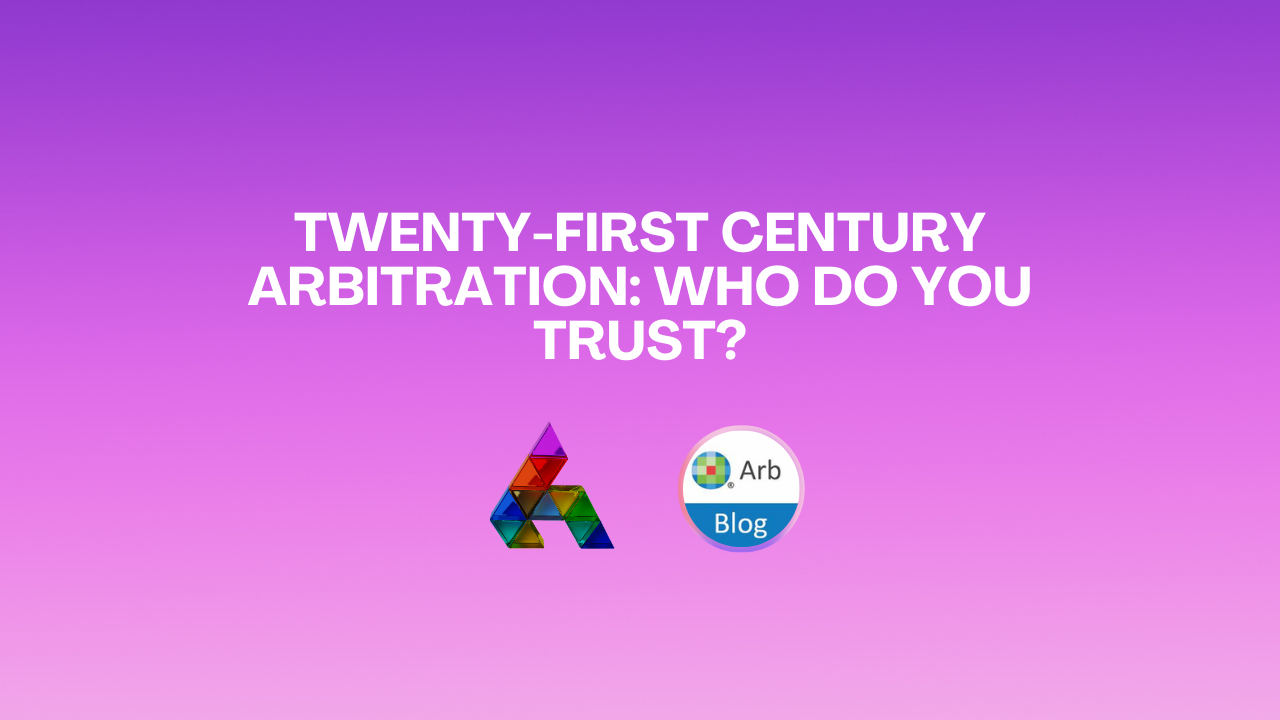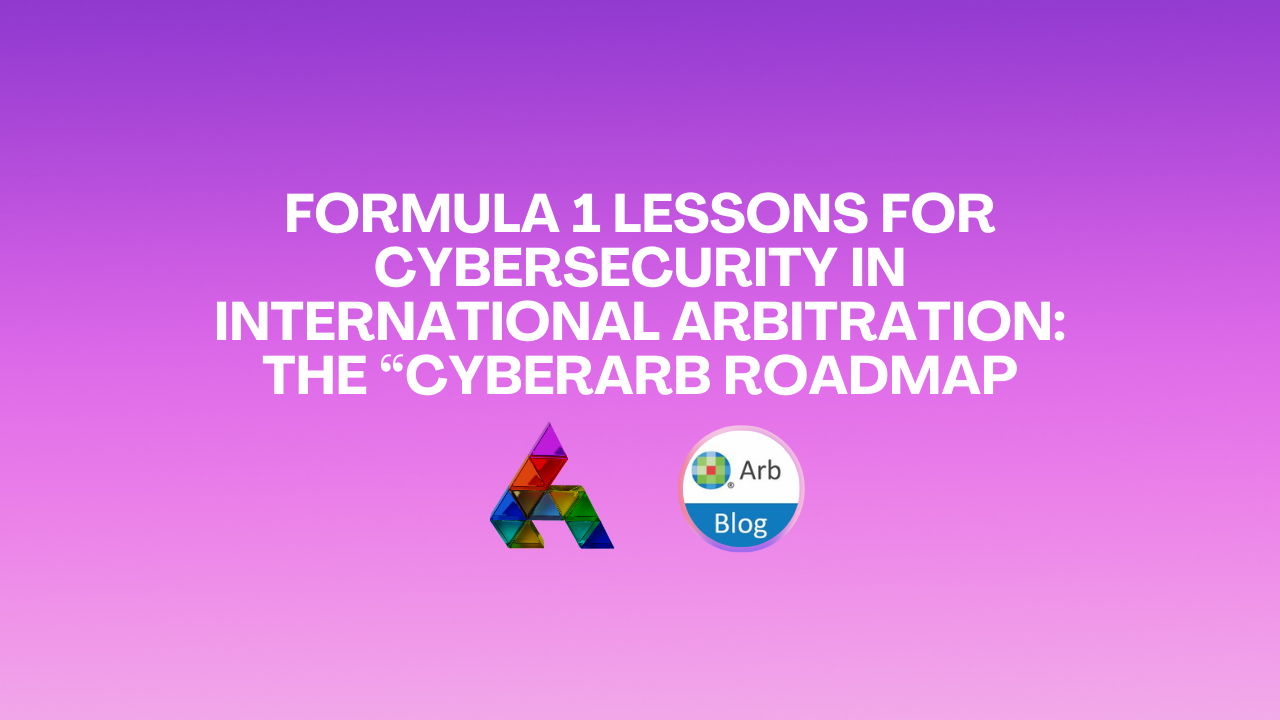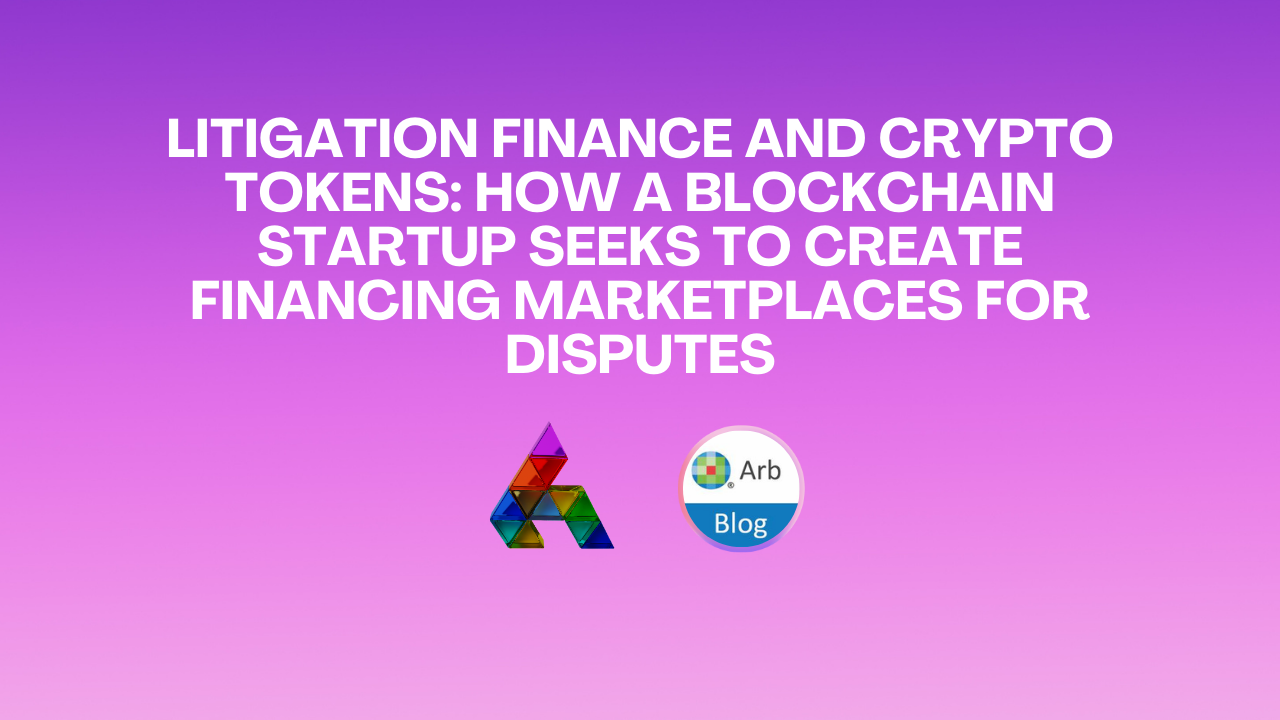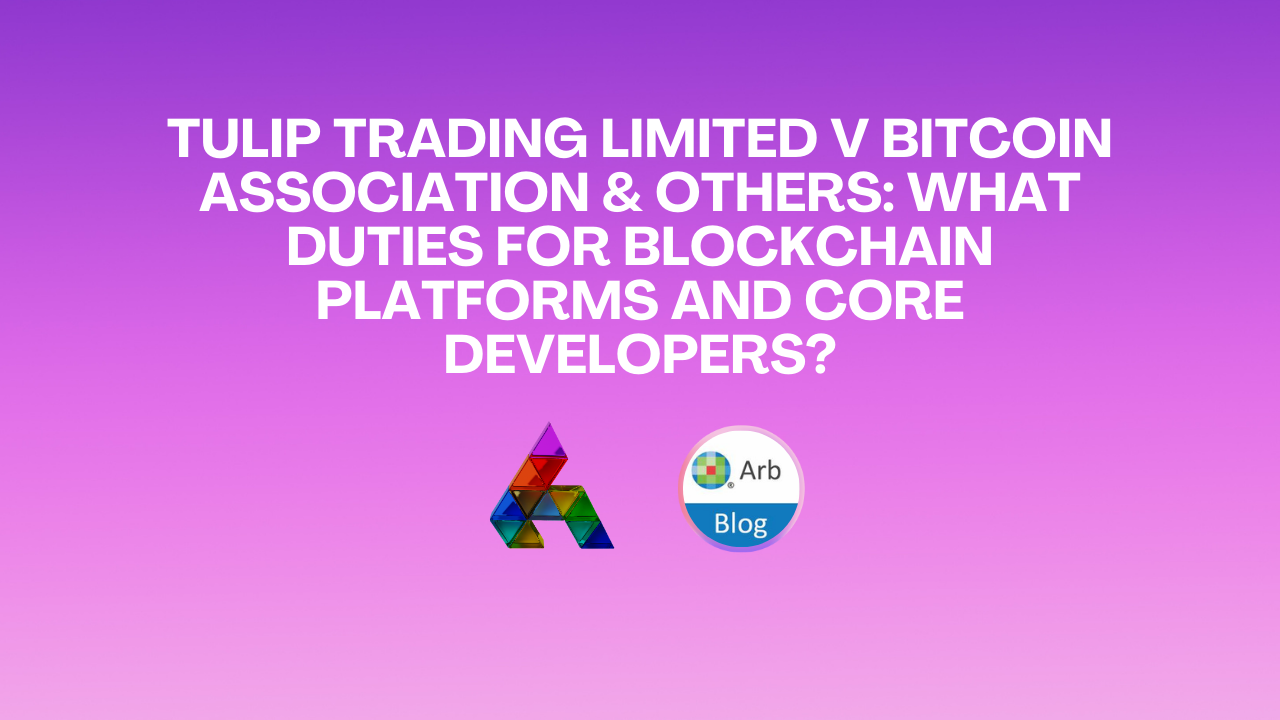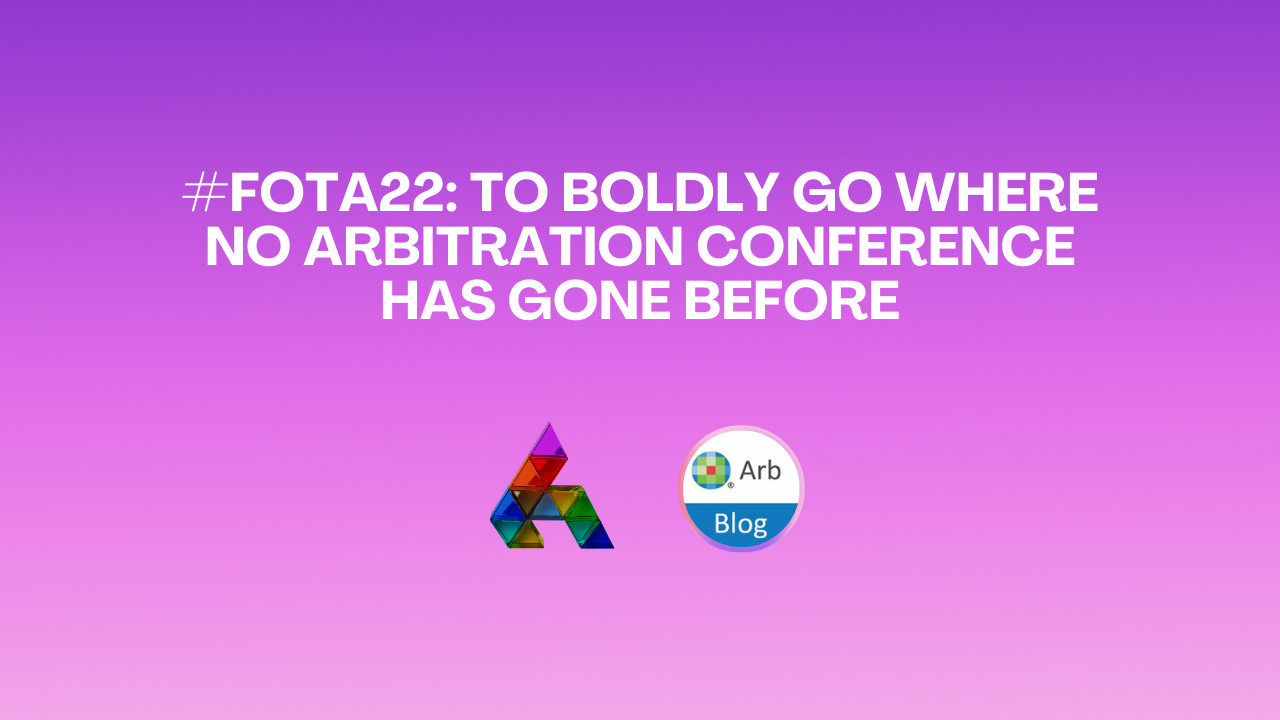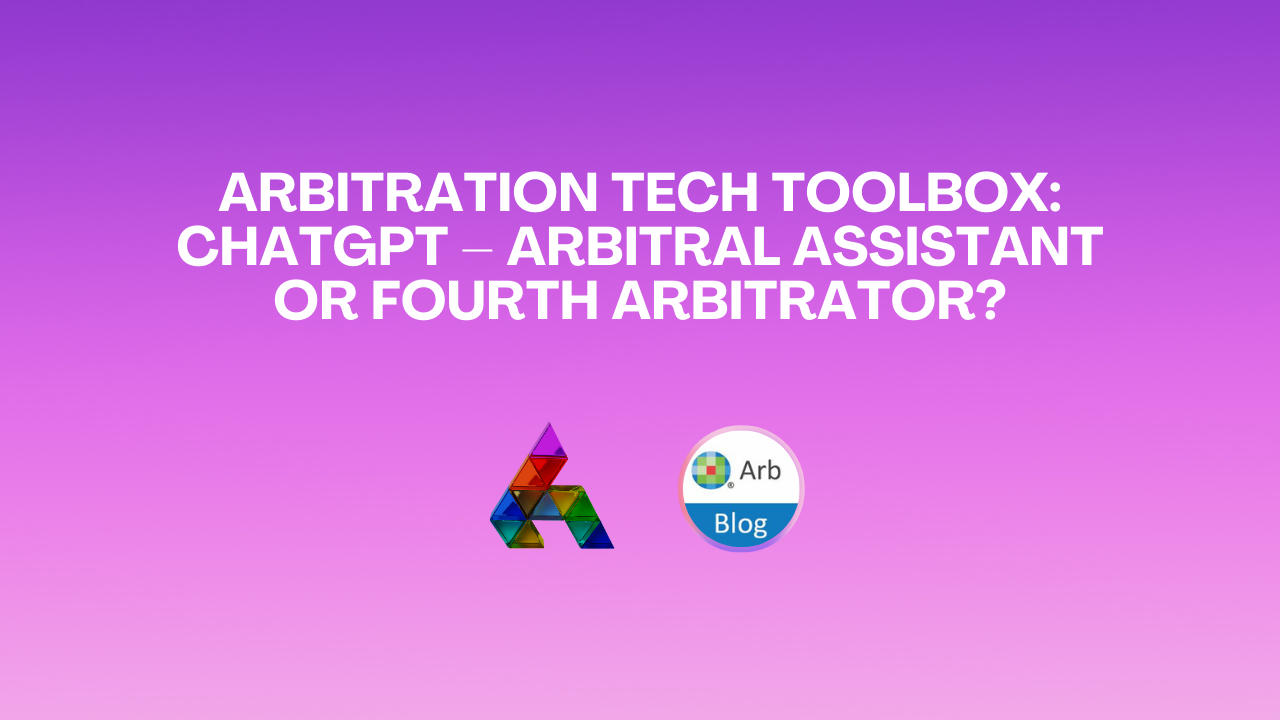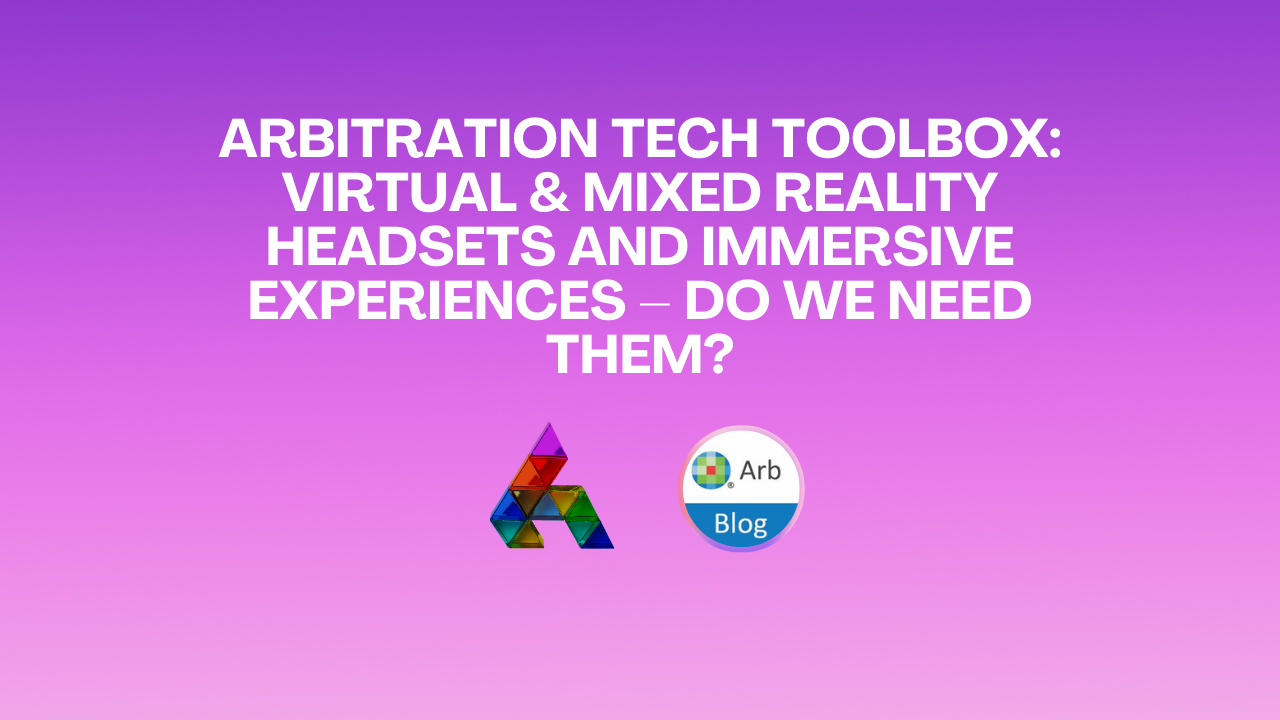"Arbitrate and Innovate" Hackathon for Lawyers – Blending AI with Legal Strategy
On October 24, 2024, Simmons & Simmons’ London office became a hub for legal innovation as Jus Mundi, Arbtech, and ICC United Kingdom co-hosted the “Arbitrate and Innovate” hackathon for lawyers. This event, which took place alongside the ICC UK’s Annual Arbitration & ADR Conference, brought together legal professionals, tech experts, and arbitration enthusiasts eager to explore the intersection of technology and law.
On October 24, 2024, Simmons & Simmons’ London office became a hub for legal innovation as Jus Mundi, ArbTech, and ICC United Kingdom co-hosted the “Arbitrate and Innovate” AI hackathon for lawyers. This event, which took place alongside the ICC UK’s Annual Arbitration & ADR Conference, brought together legal professionals, tech experts, and arbitration enthusiasts eager to explore the intersection of technology and law.
Watch what happened at the event!
Event Purpose: Blending Legal Expertise with AI
As technology continues to shape every industry, the legal profession is no exception. The "Arbitrate and Innovate" hackathon aimed to foster innovation among lawyers by encouraging the integration of artificial intelligence into traditional legal processes. The event’s main goal was to empower lawyers with hands-on experience using AI-driven tools for arbitration, addressing how these technologies can streamline tasks, enhance strategic thinking, and ultimately strengthen advocacy skills.
How the Hackathon Worked: AI-Powered Legal Strategy Development
The hackathon provided participants with access to Jus AI, Jus Mundi’s cutting-edge AI-powered legal research tool. To kickstart the competition, the organizers released a detailed case problem in advance, giving participants time to think through the challenges they would face on the day of the event. On the day itself, participants had two hours to collaboratively develop strategic responses, focusing specifically on the art of cross-examination.
The case problem was provided with kind permission of the Cross Examination Moot.
A Competitive Showcase of Legal Skill and Tech Savvy
Under the watchful eyes of a panel of expert judges, participants worked quickly to build comprehensive strategies for handling the hypothetical case, putting their combined legal skills and tech-savvy knowledge to the test. This event was a true test of adaptability, as participants leveraged Jus AI’s capabilities in legal analysis and strategy formulation within the short timeframe. After the intense two-hour session, teams presented their strategies, with the winners later celebrated on the conference stage, where they received a special award and well-deserved recognition.
ArbTech co-founder Sophie Nappert announces the winners.
Key Takeaways and Future Implications for AI in Law
One of the event's most notable outcomes was the focus on practical applications of AI in legal settings. Participants gained hands-on experience with tools that could potentially become standard in legal practice in the near future. By experimenting with AI in cross-examination scenarios, participants demonstrated how these technologies can enhance a lawyer’s strategic depth, especially in fast-paced settings like arbitration and litigation.
The hackathon emphasized the real-world impact AI can have, not only in automating repetitive tasks but also in empowering lawyers to make data-driven decisions and develop sophisticated, efficient strategies. For firms focused on arbitration, such tools hold promise for boosting efficiency and accuracy, allowing lawyers to allocate more time to complex, creative aspects of their cases.
The Growing Need for AI Knowledge in the Legal Field
As the legal industry increasingly embraces technology, events like "Arbitrate and Innovate" underscore the need for digital literacy and tech skills among legal professionals. The hackathon served as a valuable opportunity for lawyers to explore the potential of AI and gain a competitive edge in a rapidly evolving field.
Through interactive learning, practical application, and healthy competition, participants left the event not only with a sense of accomplishment but also with fresh perspectives on how technology can complement their legal expertise. As AI continues to reshape the landscape of law, Jus Mundi and ICC United Kingdom’s "Arbitrate and Innovate" hackathon marked an essential step toward a future where technology and law work hand-in-hand.
Generative AI Risks in Remote Hearings: Summary of Key Insights from Sean McCarthy's Arbitration Tech Toolbox
Explore the emerging risks of generative AI in remote arbitration with our in-depth analysis on the Kluwer Arbitration Blog. Discover how technologies like HeyGen's Instant Avatars are transforming witness testimonies and what it means for the integrity of the arbitration process. Learn about the advancements in AI, the challenges in detecting deepfakes, and the necessary steps for safeguarding legal proceedings in this comprehensive article.
The article "Arbitration Tech Toolbox: Is Generative AI Now the Biggest Threat to Remote Hearings?" by Sean McCarthy, published on the Kluwer Arbitration Blog, delves into the emergent risks associated with generative AI technologies in the context of remote arbitration. McCarthy highlights the rise of deepfake video AI technologies, such as HeyGen's 'Instant Avatars', which create lifelike avatars from short video recordings. These technologies pose significant practical and conceptual challenges, particularly concerning the authenticity of witness testimonies in arbitration proceedings conducted remotely.
The article examines how the development of Generative Adversarial Networks (GANs) has led to advances in creating highly realistic avatars that can mimic human facial expressions, speech, and even translate spoken content into multiple languages while aligning lip movements accurately. This capability raises concerns about the potential for manipulating witness testimonies using such avatars, thus undermining the integrity of the arbitration process.
McCarthy also discusses current limitations in detecting real-time deepfakes, emphasizing the need for updating virtual hearing protocols and educating practitioners on the technical aspects and potential pitfalls of AI-generated media. He calls for an "arms race" in technological development to create tools that can effectively identify and counteract the misuse of deepfake technologies in legal settings.
The full article, providing a deeper insight into these technologies and their implications for international arbitration, is available on the Kluwer Arbitration Blog.
Exploring AI's Role in Arbitration: Key Insights from Paris Arbitration Week 2024
During the recent Paris Arbitration Week, a significant discussion focused on the role of artificial intelligence (AI) in transforming the arbitration field. Experts gathered in a panel organized by Reed Smith LLP, featuring notable speakers such as Peter Rosher, Pedro Arcoverde, Sophie Nappert, and Alexandre Vagenheim. They explored how AI is reshaping the processes and practices within arbitration, promising to make dispute resolution more efficient and accessible. This session highlighted the growing influence of technology in law and arbitration, underscoring the need for the industry to adapt to these changes.
During the recent Paris Arbitration Week, a significant discussion focused on the role of artificial intelligence (AI) in transforming the arbitration field. Experts gathered in a panel organized by Reed Smith LLP, featuring notable speakers such as Peter Rosher, Pedro Arcoverde, Sophie Nappert, and Alexandre Vagenheim. They explored how AI is reshaping the processes and practices within arbitration, promising to make dispute resolution more efficient and accessible. This session highlighted the growing influence of technology in law and arbitration, underscoring the need for the industry to adapt to these changes.
Disrupting Arbitration: Sophie Nappert on Charting the Future with Technology at Paris Arbitration Week
The necessity for arbitration to adapt and embrace technological advancements has never been more critical. This belief was compellingly voiced by Sophie Nappert, co-founder of ArbTech, during a BODENHEIMER Itineraries luncheon at Paris Arbitration Week.
“Arbitration is a field in need of disruption.”
The necessity for arbitration to adapt and embrace technological advancements has never been more critical. This belief was compellingly voiced by Sophie Nappert, co-founder of ArbTech, during a BODENHEIMER Itineraries luncheon at Paris Arbitration Week.
At ArbTech, we stand at the forefront of reimagining arbitration for the digital age. Sophie Nappert's passion for melding the time-honored practice of arbitration with cutting-edge technological developments is not just a vision but a journey we are actively traversing. Her insights, garnered from a rich career at the intersection of tech and arbitration, illuminate the path forward for our community.
In this interview Sophie Nappert gives her input on:
The Quest for a Web3-Compatible Dispute Resolution System: Sophie emphasizes the importance of developing a dispute resolution framework that aligns with the Web3 economy's principles. This new digital economy demands innovative approaches to resolve conflicts that arise in decentralized, blockchain-based environments.
The AI and Arbitration Conundrum: The integration of artificial intelligence (AI) in arbitration processes is fraught with potential and pitfalls. While AI can significantly enhance efficiency and decision-making, Sophie points out the ethical considerations and the need to balance technological advantages with fairness and human judgment.
Envisioning the Future of Arbitration: Looking ahead, Sophie Nappert articulates a vision for arbitration that is more accessible, efficient, and adapted to the global digital landscape. Her forward-thinking approach encourages the arbitration community to anticipate future challenges and opportunities.
For more insights into how technology is shaping the future of dispute resolution, explore other ArbTech contributions on the Kluwer Arbitration Blog. Our articles cover a wide range of topics, from "Twenty-First Century Arbitration: Who Do You Trust?" to "Healthy Virtual Hearings," and "A Roundup of Tech and Dispute Resolution News," to "Formula 1 Lessons for Cybersecurity in International Arbitration." Each piece delves into the critical role of innovation in enhancing the arbitration process, offering valuable perspectives for professionals navigating this evolving landscape.
Explore ArbTech's Articles on Kluwer Arbitration Blog
ArbTech On Kluwer Arbitration Blog
The intersection of technology and dispute resolution continues to grow more complex and integral within the realm of international arbitration. The ArbTech team has meticulously curated a collection of insightful articles published on the Kluwer Arbitration Blog, each addressing pivotal aspects of this dynamic field.
The intersection of technology and dispute resolution continues to grow more complex and integral within the realm of international arbitration. The ArbTech team has meticulously curated a collection of insightful articles published on the Kluwer Arbitration Blog, each addressing pivotal aspects of this dynamic field.
This anthology not only explores the challenges and opportunities presented by the 21st-century arbitration process but also offers practical solutions and forward-thinking strategies to navigate this digital terrain effectively.
Twenty-First Century Arbitration: Who Do You Trust?
By: Sophie Nappert (ArbTech) and Avani Agarwal
International arbitration (IA) maintains its popularity as business’ premier choice of dispute resolution in the 21st century. This does not mean that the process is free from criticism which raises the question how IA attracts and retains the trust of its users in spite of its limitations.
The question of trust comes to the fore in a particularly acute manner in light of the advent of new technologies and their promise of decentralized, trustless justice by way of blockchain ‘arbitration’.
Healthy Virtual Hearings
By: Sophie Nappert (ArbTech) and Mihaela Apostol (ArbTech)
The travel restrictions and social distancing measures imposed by the COVID-19 pandemic have brought about an exponential increase of virtual get-togethers, including hearings via video conferencing in both litigation and arbitration proceedings.
Courts and tribunals in England and Wales reported an increase of audio hearings by over 500% and video hearings by 340% during the period 23 March – 6 April 2020. Similarly, arbitral institutions and hearing centres registered a high demand for virtual hearings: Seoul IDRC reported a rise by 500% of virtual hearings and by 460% of days of hearings held virtually. Also, 85% of the hearings booked in HKIAC cases in April and May 2020 employed remote communication tools.
A Roundup of Tech and Dispute Resolution News
By: Eric Chang (Chang Law, ArbTech)
Technology continues to transform the practice of law at a blistering pace – something obvious to all of us who suddenly find ourselves holding Zoom meetings from home in professional tops – and pyjama bottoms. However, technology’s continuing integration into the daily fabric of dispute resolution is much more than endless Zoom meetings, or even e-discovery and technology-assisted review (TAR) software. Some of the innovations, discussed below, are downright transformational. At the same time, advances in technology sometimes raise ethical and privacy concerns, bringing the inevitable – but perhaps warranted – scrutiny of legislative bodies. A few newsworthy topics can give a sense of where we are, how far we’ve come, and, most importantly, where we may be headed.
Formula 1 Lessons for Cybersecurity in International Arbitration: The “CyberArb Roadmap”
By: Wendy Gonzales (CyberArb) and Mihaela Apostol (ArbTech)
Both in Formula 1 and in international arbitration, small yet innocent mistakes can trigger significant risks. Lack of proper cybersecurity measures can lead to irreversible results with negative impact on all stakeholders involved.
In Formula 1 racing, the risk of danger is at every corner and one simple wrong move can change the outcome of the race. Although the driver is seen as the main actor, the success of the race and its safety is actually ensured by the seamless coordination of hundreds of team members which is made possible by (i) permanent monitoring; (ii) excellent team-work; (iii) routine pit stops; and (iv) fast intervention.
In this piece, we will first briefly address why cybersecurity matters, and secondly, we will analyze how the key lessons from Formula 1 can be transposed into the “CyberArb Roadmap” for arbitration proceedings. The overall goal is to provide readers with practical guidance in order to mitigate the risk of cyber threats.
The Impending Binance Arbitration: a Primer on the World of Cryptocurrencies, Derivatives Trading and Decentralised Finance on the Blockchain
By: Sean McCarthy (ArbTech) and Sophie Nappert (ArbTech)
The rise of the cryptocurrency industry has spawned some of the fastest growing and most profitable companies since the original dotcom boom, with those like Coinbase, which was valued at almost US$100 billion after its recent IPO, being prime examples. However, Coinbase, as a cryptocurrency exchange, is dwarfed by the runaway success and size of the Chinese-founded exchange, Binance. On average, around US$100 billion is traded there daily. The current size of this exchange and trading platform is equally impressive in light of the fact that the company was originally founded in 2017 (five years after Coinbase). The reasons for Binance’s rapid development have obviously mirrored the cryptocurrency industry’s massive expansion, but they are also likely due to its unorthodox approach to providing its services in every corner of the globe over the past four years. This latter point is one of the many interesting parts of the impending arbitration to be filed by disgruntled traders against the platform.
Washington Arbitration Week: Using BITs to Protect Cryptocurrency Investments?
By: Sarah Chojecki (ArbTech), Jose Antonio Rivas (Xtrategy LLP), Munia El Harti Alonso (Concepción Global, PLLC, Universidad Complutense de Madrid), and Fredrik Lindmark
The Second Edition of the Washington Arbitration Week took place from 29 November to 3 December 2021, hosting 16 panels, including two hybrid panels with both in-person and virtual attendees. This post highlights the panel on ‘Investment Treaty Arbitration in the Digital Era: Using BITs to protect Cryptocurrency Investments?’ Cristen Bauer (U.S. Department of Commerce) moderated the panel consisting of Ana Fernanda Maiguashca (Private Competitiveness Council and former Board Member of the Central Bank of the Republic of Colombia), Santiago Rodríguez (Uria Menendez), Sophie Nappert (3VB), David L. Attanasio (Dechert LLP), and Tom W. Walsh (Freshfields Bruckhaus Deringer LLP).
Ms. Bauer opened the discussions by remarking on the cutting-edge nature of the legal questions brought by cryptocurrencies into international investment law. While cryptocurrency investments have been soaring in the past decade, governments and their regulators are still trying to determine the nature of crypto assets and whether and how they should be regulated, raising many questions about the potential implications for investment treaty claims. The panel addressed various issues, including the definition of crypto assets, the ownership of such assets, whether investment treaties and conventions cover disputes involving crypto assets and, finally, the impending regulation of cryptocurrency investments.
Litigation Finance and Crypto Tokens: How a Blockchain Startup Seeks to Create Financing Marketplaces for Disputes
By: Eric Chang (Chang Law) and Sean McCarthy (ArbTech)
A recent VICE Motherboard article highlights an intriguing innovation at the intersection of crypto tech and litigation finance. The topic has caused quite a stir, including a thought-provoking discussion on ArbTech, an online forum on technology and dispute resolution. This post reports on this innovation, and expands upon the ArbTech discussion.
The innovation concerns Ryval, a law firm-backed crypto project with an ambitious vision of creating the “stock market of litigation financing,” via the purchase and trade of crypto tokens that fund civil lawsuits. The project is a collaboration between Kyle Roche, a partner in the New York law firm, Roche Freedman LLP; Republic, an investment platform providing access to startups, real estate, crypto, and video game investments; and Ava Labs, creator of the Avalanche smart contracts platform. Ryval calls this crypto offering the world’s first “Initial Litigation Offering,” or ILO – taking inspiration from the mechanics of the most known crypto fundraising process called an initial coin offering (ICO).
The particulars of Ryval’s offering generate serious doubts about its viability and attractiveness for potential investors. However, the broader tokenization concept raises fascinating possibilities for the litigation finance space, potentially creating entirely new funding markets and classes of investors.
Tulip Trading Limited v Bitcoin Association & Others: What Duties for Blockchain Platforms and Core Developers?
By: Sophie Nappert (3 Verulam Buildings & ArbTech) and Elisabeth Zoe Everson (ArbTech)
On 25 March 2022, as reported inter alia by Bird & Bird who acted for the successful defendants, the High Court of Justice in England (hereinafter the “High Court” or “Court”) rendered its eagerly-awaited judgment in the dispute between Tulip Trading Limited v Bitcoin Association & others.
An alleged hack had prevented Tulip Trading Limited (“TTL”), or more precisely its CEO, Dr Craig Wright, from accessing over a million dollars’ worth of digital currency assets held at two addresses within the relevant networks (the “Networks”). TTL sought to hold the networks and their core developers accountable, notably on the basis that they owed users a fiduciary duty to counter the effects of the hack and allow Dr Wright access to his assets.
This is a ground-breaking development for the blockchain and cryptocurrency community that provides important insight into the application of English law to the digital economy.
The decision deals with several procedural applications made by the Parties. This comment focuses on the Court’s treatment of the claimant’s allegation that the defendants were in breach of the common-law tort of fiduciary duty and thereby liable for the loss of the claimant’s digital currency as a result of the alleged hack.
#FOTA22: To Boldly Go Where No Arbitration Conference Has Gone Before
By: Sean McCarthy, Elisabeth Zoe Everson (ArbTech) and Sabine Van Haecke-Lepic (CMAP - Médiation et Arbitrage)
On the morning of Friday 16 September 2022, to the sound of the Star Wars theme, the first edition of the Future of Technology in Arbitration 2022 conference, a.k.a. FOTA22, officially began. Delving into many interesting topics, the organizers ensured plenty of opportunities for the participants to have an active say in what was being discussed. Alexandra Sidossis (4-5 Gray’s Inn Square) guided the audience through voting in multiple surveys on topical questions such as the future of the use of holograms in arbitration hearings. In between discussion panels, six legaltech companies were interviewed and presented their technology in the FOTA Showcase, as chosen by a panel of eminent arbitration practitioners.
Arbitration Tech Toolbox: ChatGPT – Arbitral Assistant or Fourth Arbitrator?
By: Stefanie G. Efstathiou (Ludwig-Maximilians-Universität München) and Mihaela Apostol (ArbTech)
The prospect of integrating generative artificial intelligence (AI) into the adjudicatory decision-making process is not as distant as one might think. In February 2023, it was reported that a Colombian judge used ChatGPT in deciding a health insurance dispute. The judge asked both decisional and research questions and integrated those responses into his judgment. Another example comes from a court in Pakistan. One company has also explored the use of ChatGPT in mediation, ChatGPT was a party in a recent mock arbitration hearing based on the Vis Moot case, and Jus Mundi just announced its Jus AI. If judges and mediators can rely on ChatGPT, why not arbitrators?
Arbitration Tech Toolbox: Virtual & Mixed Reality Headsets and Immersive Experiences – Do We Need Them?
By: Sarah Chojecki (ArbTech) and Sophie Nappert (3 Verulam Buildings & ArbTech)
Just when it seemed that the tech industry had turned its back on futuristic, immersive digital worlds, often called the metaverse, Apple launched its first Mixed Reality headset, the Apple Vision Pro, on June 5, 2023. Expected to go on sale in the U.S. in early 2024 for $3,499, the Apple Vision Pro signals Apple’s foray into this space, or what Apple calls “spatial computing.” A few days before, Meta (formerly Facebook) unveiled plans to release the third iteration of its Virtual Reality headset, the Quest 3.
An interesting feature of Apple’s new headset is that it promises users to create a virtual version of their faces that is accurate to how they look. Exit the cartoony avatars generated by apps like Microsoft Teams and Meta’s Horizon Worlds.
Despite the mixed initial reviews of Apple’s Vision Pro, these concurrent announcements from two tech giants have reignited discussions surrounding these cutting-edge technologies (previously discussed here).
In this blog post, we dive into the world of Extended Reality (XR) and its different forms, and explore XR’s benefits, challenges, and potential implications for international arbitration.
Uniting for Global Challenges: Join Us at London International Disputes Week 2024
ArbTech is excited to announce its support for the upcoming London International Disputes Week (LIDW24), set to take place from 3rd to 7th June 2024. This year, the focus is on 'Uniting for Global Challenge and Opportunity', a theme that highlights the collaborative efforts of the disputes community in addressing global challenges through international dispute resolution.
ArbTech is excited to announce its support for the upcoming London International Disputes Week (LIDW24), set to take place from 3rd to 7th June 2024. This year, the focus is on 'Uniting for Global Challenge and Opportunity', a theme that highlights the collaborative efforts of the disputes community in addressing global challenges through international dispute resolution. The highlight of the week, occurring on Tuesday 4th June at the prestigious QEII Centre, promises a dynamic and engaging program that will explore London's role as a global hub for international dispute resolution.
For the past four years, LIDW has established itself as a pioneering forum that brings together leading minds to discuss and shape the future of international dispute resolution and arbitration. The 2024 edition is particularly exciting, as it introduces a hybrid format, enabling legal practitioners from around the world to partake in the discussions and share insights into the evolving landscape of international dispute resolution. This year's event will not only offer an opportunity to delve into the business and legal intricacies of international disputes but also provide a platform for networking and collaboration among professionals from diverse legal backgrounds.
To ensure you stay informed about ticket releases and additional details about LIDW24, we encourage you to express your interest by emailing lidw@tmb-events.com. Additionally, for the latest updates and information, follow LIDW on LinkedIn.
Don't miss this opportunity to be part of a gathering that is set to redefine the future of international dispute resolution and arbitration. Join us in London for a week of insightful discussions, valuable networking, and a chance to unite for addressing global challenges and opportunities in the field.
ArbTech Celebrates New Milestone: Becoming an Affiliate of Kluwer Arbitration Blog
ArbTech is thrilled to announce its recent achievement of becoming an Affiliate of the Kluwer Arbitration Blog, a status attained through our dedicated contributions throughout 2023.
ArbTech is thrilled to announce a significant milestone in our journey within the international arbitration community. We are proud to share that ArbTech has become an Affiliate of Kluwer Arbitration Blog.
This new title not only honors the hard work and expertise of our team but also highlights our collaborative approach to advancing the discussion on technology's role in arbitration. We have consistently strived to provide valuable insights into how technology can transform arbitration practices, offering our unique perspective and fostering a deeper understanding of this evolving landscape.
We extend our heartfelt gratitude to Kluwer Arbitration Blog for this recognition and to our dedicated team at ArbTech for their tireless efforts. We also thank our readers and contributors who have engaged with our content, encouraging a dynamic exchange of ideas. This milestone is not just a recognition of past achievements but also a stepping stone towards further contributions and discussions in the future.
Explore our contributions and join the ongoing discourse on the intersection of technology and arbitration at Kluwer Arbitration Blog. This affiliation marks a significant chapter in ArbTech's mission to innovate and inspire within the arbitration community, and we look forward to continuing this journey with you.
For more information and to stay updated on our latest contributions, follow ArbTech and Kluwer Arbitration Blog. Together, let's shape the future of arbitration in the digital age.
GAR Live: Technology Disputes 2024 - Navigating the Future of Tech Litigation in San Francisco
Join co-chairs Paul Cohen and Yasmine Lahlou for the much-anticipated inaugural edition of GAR Live: Technology Disputes, set to take place on 13 March 2024 at Cooley in San Francisco. This premier event marks a significant milestone in the realm of technology disputes, offering a unique platform for leading practitioners from the United States and around the globe to convene and explore the rapidly evolving landscape of technology law and the burgeoning risk of disputes in this sector.
Join co-chairs Paul Cohen and Yasmine Lahlou for the much-anticipated inaugural edition of GAR Live: Technology Disputes, set to take place on 13 March 2024 at Cooley in San Francisco. This premier event marks a significant milestone in the realm of technology disputes, offering a unique platform for leading practitioners from the United States and around the globe to convene and explore the rapidly evolving landscape of technology law and the burgeoning risk of disputes in this sector.
The day-long event in San Francisco is poised to foster high-level discussions on pivotal developments within the technology domain, addressing the surge in disputes that the tech industry is increasingly facing. Participants can look forward to a comprehensive agenda packed with insightful sessions on defining tech disputes, drafting effective clauses to mitigate risk, understanding the implications of International Settlement of Dispute (ISDS) in the tech sector, and engaging in a thought-provoking GAR debate focusing on the intricacies of blockchain arbitration.
This gathering is an unmissable opportunity for legal practitioners, arbitrators, in-house counsel, and tech industry stakeholders to gain valuable insights into the challenges and opportunities presented by technology disputes. The forum aims to equip participants with the knowledge and strategies necessary to navigate the complex intersection of technology and dispute resolution effectively.
For those interested in being part of this groundbreaking event, further details and registration information are available on the official homepage. Secure your place at GAR Live: Technology Disputes in San Francisco by registering through the provided link, and join the conversation on how the legal community can unite to address the dynamic challenges of technology disputes.
Registration for GAR Live: Technology Disputes 2024
Don't miss this opportunity to engage with leading minds in the field and contribute to shaping the future of technology dispute resolution. Register now to ensure your participation in what promises to be an enlightening and impactful event.
